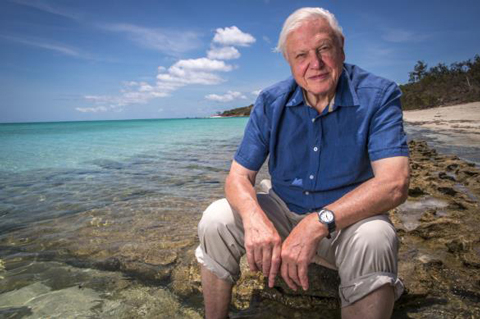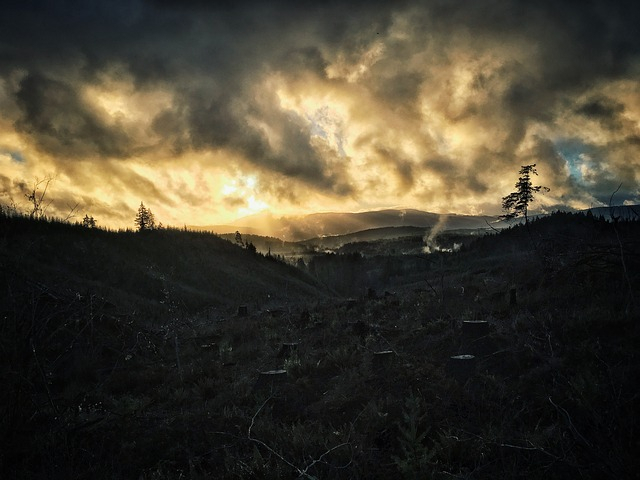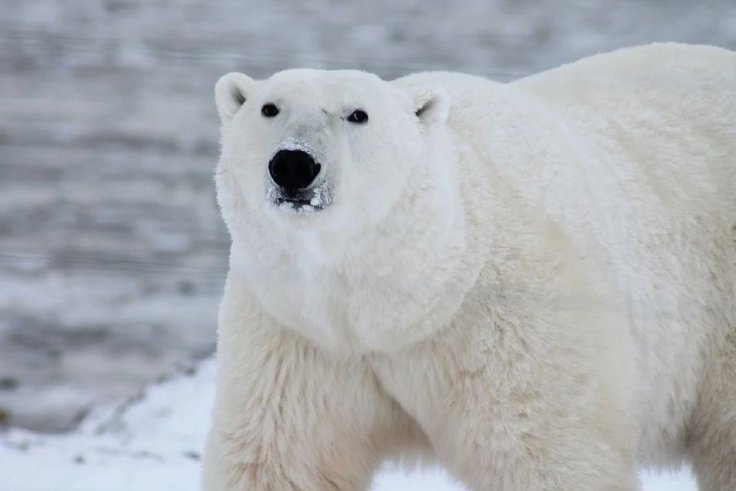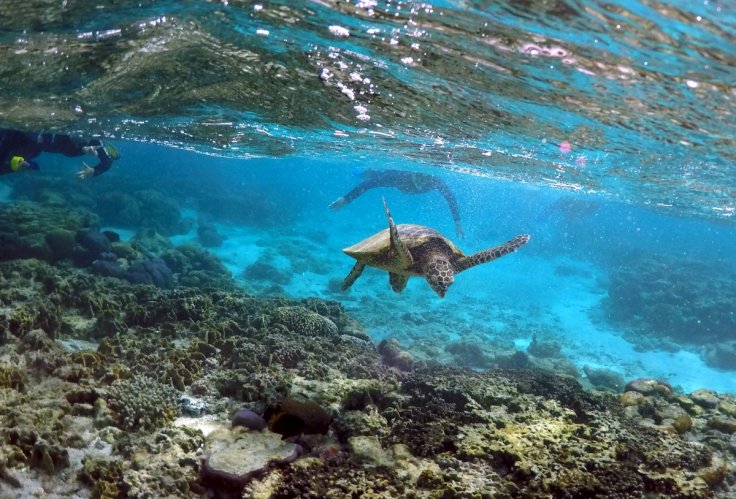Sir David Attenborough, an English broadcaster, writer, and naturalist revealed how those people who born in the 21st century could witness catastrophic scenarios unless humans save the planet.
He said Pripyat, the Ukraine city, is now abandoned due to the Chernobyl Nuclear Power Plant disaster—because of bad planning and human error. Sir Attenborough said, "It didn't begin with a single explosion. It started silently before anyone realized it. We are all people of Pripyat now. We live our comfortable lives in the shadow of a disaster of our own making."
He not only said that our natural world is fading away but also noted that the evidence is all around and if humans do not take any action soon, it will lead to "our destruction," and the catastrophe will be "immeasurably more destructive than Chernobyl."
Sir Attenborough also said that if humans continue to neglect all the signs of future destruction then the civilization will face far more than flooded lands, stronger hurricanes, and summer wildfires. He explained that in earth's four-billion-year-old history the planet witnessed several catastrophic and five mass extinction incidents—each time nature collapsed and left just enough survivors to start the process once more. Now, once again, "we are facing the real possibility of sixth mass extinction, one caused by human actions," said Sir Attenborough.

The Changing World
People recently started to talk about climate change and its effect on the earth. But as per Sir Attenborough, who is famous for his innovative educational television programs, especially the 'Life' series, it is clear now that man-made global warming is the only one of a number of crises in play.
A team of researchers led by Swedish professor Johan Rockstrom and Will Steffen, the executive director of the Australian National University Climate Change Institute, have identified nine critical thresholds "hard-wired into earth's environment." These are climate change, fertilizer use, land conversion, ocean acidification, air pollution, biodiversity loss, ozone-layer depletion, chemical pollution, and freshwater withdrawals.
As per Sir Attenborough if humans push the demands to such an extent that any one of these boundaries is breached, "we risk destabilizing the Earth's life-support machine, permanently debilitating nature and removing its ability to maintain a safe, benign environment." According to him, humans have already breached four of the nine thresholds.

Populations of gorillas and orangutans have been devastated by the loss of half the world's rainforests, coastal developments and seafood farming projects have reduced mangroves, over 90 percent of seabirds have plastic fragments in their stomach and the extraction of millions of tons of seafood from the world oceans have reduced 30 percent of fish stocks to critical levels. But the worse is yet to come. Sir Attenborough said, "I fear for those who will bear witness to the next 90 years if we continue living as we are doing at present."
The Future of The Planet
As per the British naturalist, after decades of deforestation and illegal burning in the Amazon, the rainforest which is known as the lungs of the earth is on course to be reduced to 75 percent of its original extent by the 2030s. The diminishing rainforest which will lead to a reduction of rainfall that will cause a shortage of water, drought in several regions, and affect the food production.
The loss of biodiversity would be catastrophic, the species which are key to drug and food production could be lost forever, and 21 million hectares of oil palm plantations, mostly in the South East Asia region, are causing a devastating loss of habitat.
With lesser numbers of dark forests, there will be fewer trees holding the soil in place and leading to frequent floods. It is estimated that around 30 million people would be homeless, while the reduction of trees will increase the CO2 level in the atmosphere, increasing the speed of global warming. He also noted that the more humans continue to cause deforestation and invade into the wild, run illegal wildlife trade, "the more likely it is that another pandemic would arise."

"The Arctic Ocean is expected to have entirely ice-free summer in the 2030s, resulting in open water at the North Pole", said Sir Attenborough and added that "for the polar bear, which relies on the northern sea ice as a platform from which to hunt seals, this is devastating."
Scientists detected a worrying trend as the ice-free period becoming longer. He said that "pregnant females, drained of their reserves, were now giving birth to smaller cubs," and there is a possibility that in one year when the summer would be a little longer, the cubs born that year will not survive their first polar winter and "that whole population of polar bears would then crash," reported Daily Mail.
According to him, the changing weather could turn the entire ocean into sufficiently acidic as a result of CO2 forming carbonic acid to trigger a calamitous decline. The ocean ecosystem will be devastated and coral reefs would suffer, plankton and fish population would reduce as well as the oyster and mussel harvest would start to fail.

According to the naturalist, the 22nd Century could start with a worldwide humanitarian crisis. Coastal cities around the world would face a predicted sea-level rise of three feet during the 21st Century, due to the melting ice sheets. But by 2100, the sea level could be high enough to destroy ports and flood hinterlands and in the next century over a quarter of the human population could live in places with an average temperature of over 29 Celsius (84F), a daily level of heat that is now noticed only in Sahara.
At the end he noted that the sixth mass extinction of earth "would become unstoppable," and "within the lifespan of someone born today, our species is currently predicted to bring about nothing less than the collapse of the living world, the very thing that our civilization relies upon."









